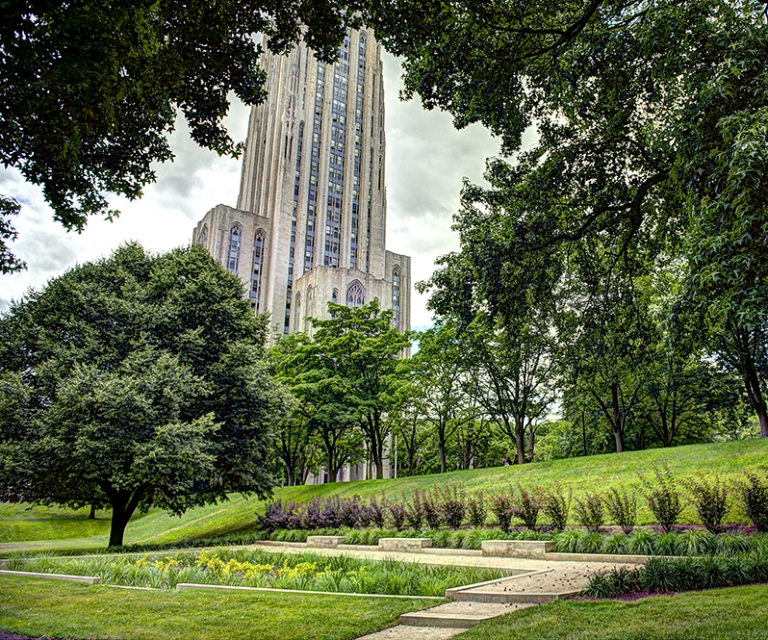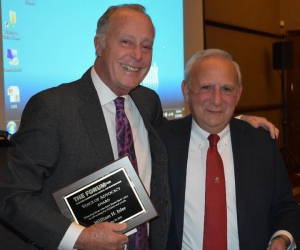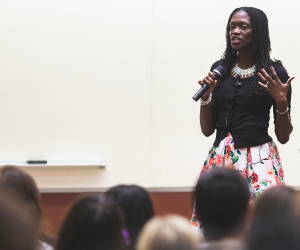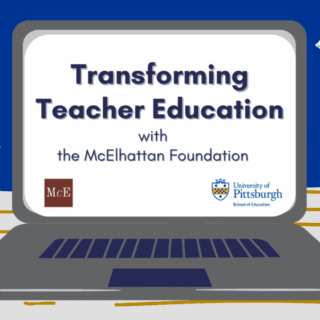
New Faculty Strengthen School’s Commitment to Equity and Justice
The University of Pittsburgh School of Education has bolstered its faculty ranks by adding five new tenured or tenure-stream professors for the start of the fall 2020 term. The faculty will teach graduate courses and conduct research in the areas of decoloniality and indigeneity, research-practice partnerships, post-secondary education access, racism in schooling, and equity-oriented teacher certification programs.
“Our new faculty represent important and necessary investments that our School of Education and the University of Pittsburgh are making with regards to scholarship centered on equity and justice in education,” says Valerie Kinloch, the Renée and Richard Goldman Dean of the Pitt School of Education.
“Now more than ever, it is important that we engage America’s educators in work that is antiracist, humanizing, equitable, and well-centered. I expect our newest scholars to innovate and agitate as they help us carry out our forward-thinking mission-vision of igniting learning in education,” says Kinloch.
Meet Our New Faculty:
-
Sabina Vaught, Professor and Chair, Department of Teaching, Learning, and Leading
-
Darris Means, Associate Professor of Higher Education
-
Eleanor Anderson, Assistant Professor of Research-Practice Partnerships
-
Shanyce Campbell, Assistant Professor of Urban Education and Quantitative Methods
-
Josué Ricardo López, Assistant Professor of Decoloniality and Equity Studies in Teacher Education
Sabina Vaught: Imagining Abolitionist Futures with Insurgent Knowledge Communities
Sabina Vaught joins the school as professor and inaugural Chair of the new Department of Teaching, Learning, and Leading. Vaught was most recently at The Simpson Center for the Humanities at the University of Washington, where she was a scholar-in-residence working on two major book projects. Prior, she was chair of the Department of Educational Leadership and Policy Studies at the University of Oklahoma’s (OU) Jeannine Rainbolt College of Education, where she collaborated to establish the Indigenous Education focus, found the Carceral Studies Consortium, and build the Women and Girls Across Gender Initiative. Before her time at OU, Vaught was a faculty member at Tufts University, where she served as Director of Women, Gender, and Sexuality Studies, Africana Studies, and Educational Studies, and Chair of the Department of Education. She was also Co-Chair of the board for a nine-university consortium housed at MIT: the Consortium for Graduate Studies in Gender, Culture, Women, and Sexuality.
Vaught’s research considers carcerality and liberatory knowledge movements broadly and the race-gender labor and conquest relationships among schools, prisons, and insurgent communities specifically. In her scholarly work, Vaught draws on a constellation of knowledge traditions that help make sense of insurgent and counterinsurgent movements: feminisms, the Black radical tradition, Indigenous studies, and legal studies/Critical Race Theory. Her most recent book, Compulsory: Education and the Dispossession of Youth in a Prison School (University of Minnesota Press, 2017), is an ethnographic study inside a state juvenile prison schooling system. Her two current book projects are a co-authored ethnographic, legal, and cultural study of Indigenous youth self-determination experiences with conquest colonial school-prison experiences and a single-authored ethnographic examination of gender-based carceral disciplinary practices across North American institutional and private contexts. Vaught’s teaching has extended to adult and juvenile prisons for state-identified women and girls, where she has facilitated Feminist Studies study groups. Vaught was a high school language arts teacher and leader in two city school districts and two bridge programs where she sharpened her pedagogical and labor justice sensibilities. “Engaging in insurgent knowledge traditions with my students and collaborators is among my greatest joys,” says Vaught.
Darris Means: Creating Equitable Access to Higher Education
Darris Means is an associate professor in higher education. He researches post-secondary education access and success for Black students, rural students, first-generation students, and students from low-income and working-class families with a focus on how racism, classism, spatial inequalities, heterosexism, and other forms of oppression hinder educational equity. The subject has personal meaning to Means. “I am a first-generation college student, and I also come from a working-class family where I had to overcome multiple barriers to make attending college a reality. It makes it much more special to be working with students like me,” says Means.
Most recently, Means was a faculty member at the University of Georgia Mary Frances Early College of Education, where he taught in the school’s College Student Affairs Administration and Student Affairs Leadership program. Prior to working at Georgia, Means worked as the associate director of the Elon Academy at Elon University. He helped to build a college access program for high school and college students who had a financial need and/or no family history of college.
Eleanor Anderson: Building Partnerships Across Research and Practice
Eleanor Anderson is an assistant professor of Research-Practice Partnerships (RPPs). Her research centers on what makes some education initiatives stick while so many others fade away, drawing on theories of organization, learning sciences, and policy studies. She has examined the use of restorative justice practices in Chicago schools with a focus on understanding the day-to-day challenges of implementation and working with educators to design more sustainable strategies. Most recently a Research Fellow at Northwestern University’s School of Education and Social Policy, Anderson has worked collaboratively with district leaders, funders, non-profit staff, and teachers. She has also conducted research on RPPs themselves, comparing them across different models of partnership. “I’m excited about joining the school because I can see there is real intentionality here about impact and working collaboratively with schools and communities,” says Anderson.
Shanyce L. Campbell: Advancing Opportunities to Learn for Students of Color
Shanyce L. Campbell is an assistant professor of urban education and quantitative methods and is part of the school’s Center for Urban Education. Her research focuses on understanding how policies and practices influence access to quality learning opportunities for students marginalized by the educational system. Employing quantitative, qualitative, and mixed methods, she critically explores educational policies connected to instructional quality, school-community partnerships, and access to higher education. Most recently, Campbell was a faculty member in the School of Education at the University of California, Irvine. She is a recent recipient of the American Educational Research Association’s (AERA) Palmer O. Johnson Memorial Award for the most outstanding article appearing in an AERA-sponsored journal. She is currently completing a National Academy of Education and Spencer Foundation Postdoctoral Fellowship, where she is “leading a study that examines how teacher preparation programs foster equity dispositions among teacher candidates,” says Campbell.
Josué Ricardo López: What Do We Need to Live Well?
Josué Ricardo López is an assistant professor in decoloniality and equity studies in teacher education. His research interests include mobility, race, indigeneity, education, and schooling. His research also asks questions about how education contributes to our ability as humans to live well. Prior to earning his PhD from the School of Education at the University of Connecticut, López taught at the elementary, middle, and high school levels in Connecticut public schools. “What is it that we require to live well? How does education—and schooling more specifically—help meet our needs and interests so we may live well? These are principle questions in how I approach decoloniality in education and schooling,” says López.




